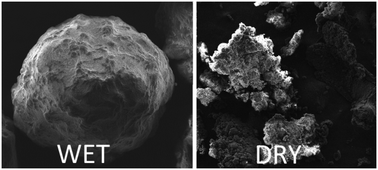Impact of catalyst injection conditions on the gas phase polymerization of propylene
Abstract
In the current work, gas phase propylene polymerizations were performed on ZN catalysts in a stopped flow reactor to understand the effect that the injection conditions (dry, as received, or wetted with a commercially available paraffinic mineral oil) have on initial temperature profiles, nascent polymer properties, and polymerization kinetics. Temperature spikes followed by initially high activity and rapid deactivation were always observed earlier in the dry case. The initially high activities are attributed, at least in part, to lower resistance to monomer transport to the active sites, due to the absence of mineral oil in the dry case. This causes overheating of the catalyst, leading to faster reaction, but then to rapid thermal deactivation of the catalysts. Furthermore, it was found that oil can decrease the iPP crystallization temperature which makes the polymer more deformable, and is possibly one of the reasons for which one obtains better morphology using wet injection.



 Please wait while we load your content...
Please wait while we load your content...